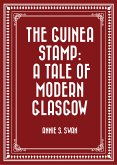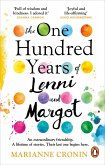In "The Guinea Stamp: A Tale of Modern Glasgow," Annie S. Swan offers a poignant exploration of class struggles and social change in late 19th-century Scotland. Through a rich tapestry of characters, including the ambitious young protagonist striving for upward mobility amidst the gritty realities of urban life, Swan employs a naturalistic literary style that mirrors the complexities of the modern human experience. The narrative deftly interweaves themes of economic hardship, gender dynamics, and community resilience, providing readers with a vivid portrayal of Glasgow during a transformative period marked by industrialization and social reform. Annie S. Swan, a prominent Scottish novelist and campaigner for women's rights, drew on her own experiences living in Glasgow to shape the social commentary embedded in this work. Her deep understanding of the struggles faced by women and the working class is reflected in her characters' journeys, as they navigate the intricacies of love, ambition, and survival in a rapidly changing society. Swan's dedication to shedding light on social issues of her time is evident, making her a significant voice in Scottish literature. For readers seeking a profound engagement with historical contexts and social critiques, "The Guinea Stamp" stands as a compelling narrative that resonates with contemporary discussions around class and identity. Swan's masterful storytelling invites readers to reflect on the lasting impact of societal structures, making this novel not only a captivating tale but also a relevant commentary on modern social dynamics.
Dieser Download kann aus rechtlichen Gründen nur mit Rechnungsadresse in A, B, BG, CY, CZ, D, DK, EW, FIN, F, GR, H, IRL, I, LT, L, LR, M, NL, PL, P, R, S, SLO, SK ausgeliefert werden.
Hinweis: Dieser Artikel kann nur an eine deutsche Lieferadresse ausgeliefert werden.









